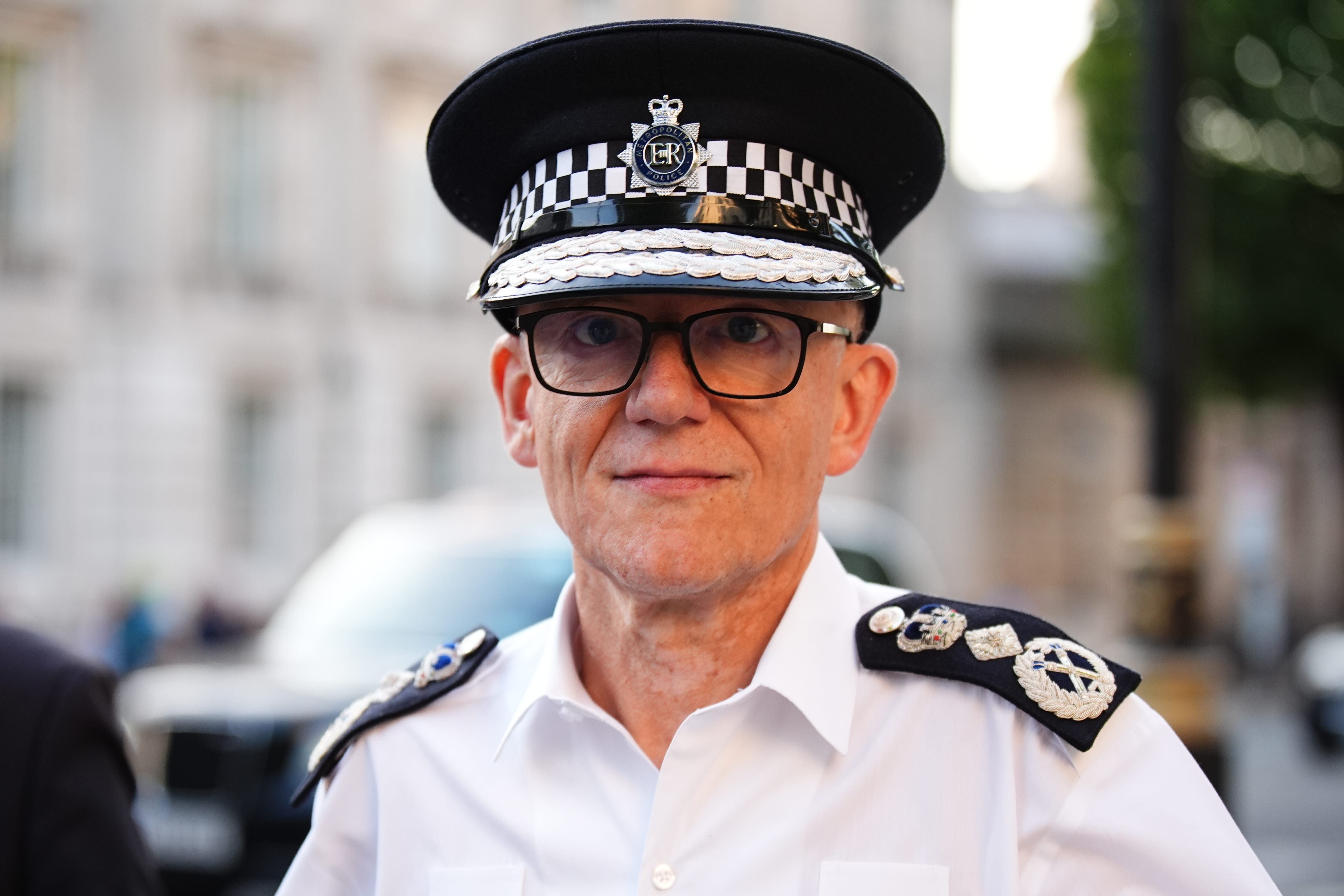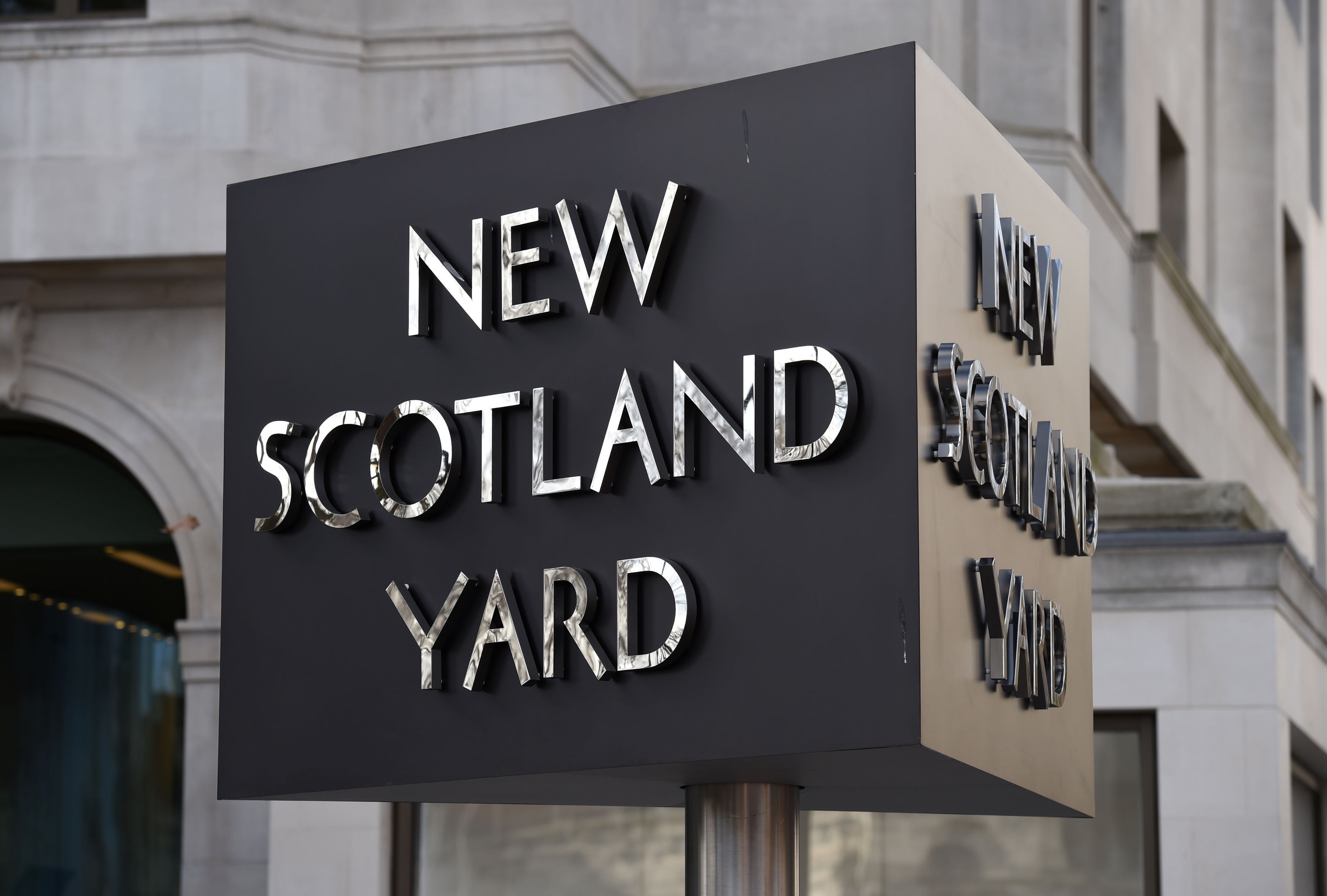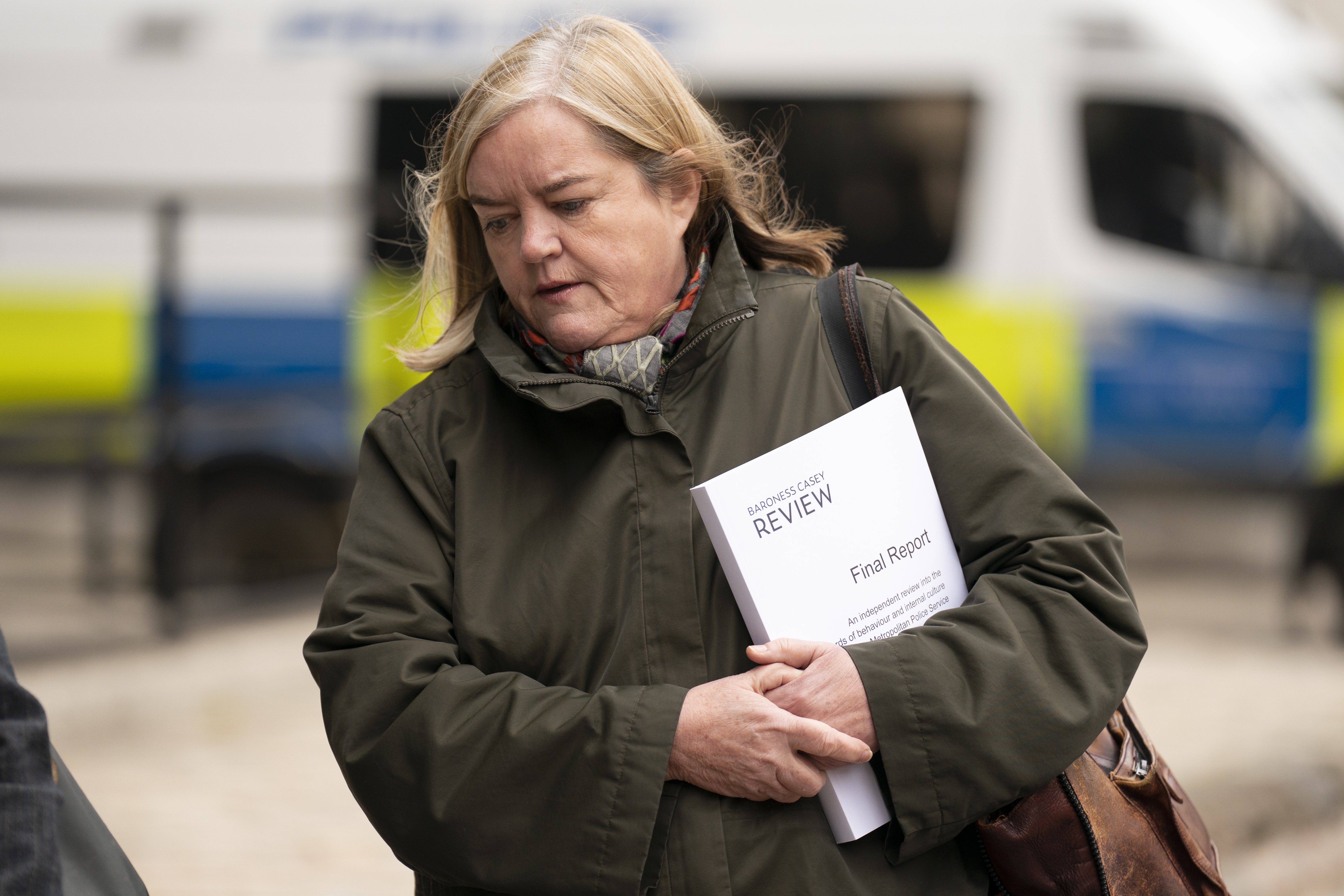Met Police failing to manage sex offenders after scandals including Sarah Everard murder, report finds
Inspectors found one high-risk sex offender had not been checked on since 2017 and the force took no further action in six in 10 indecent imagery investigations

Britain’s biggest police force is not managing risks from sex offenders two years after it was put in special measures following a series of scandals including the rape and murder of Sarah Everard.
Inspectors have raised serious concerns about how the Metropolitan Police investigates crime and manages known abusers, with one high-risk offender having not been successfully visited since 2017.
A performance report also highlighted the force had a “no further action” rate of 60 per cent for indecent imagery of children investigations.
The force’s investigations also suffer from “inconsistent decision-making” and arguments, with inexperienced officers trying to manage more than 25 crimes at once, according to the report.
His Majesty’s Inspectorate of Constabulary and Fire & Rescue Services graded the Met’s performance across eight areas of policing and found the force requires improvement in five areas and was inadequate in two areas – investigating crime and managing offenders and suspects.
It was only found to be adequate in one area, regarding its use of police powers and treatment of the public. No areas were graded as ‘good’ or ‘outstanding’.

The Met was put in special measures by the policing watchdog in June 2022 over systemic problems. It came after a series of scandals including the abduction, rape and murder of Sarah Everard by a serving Met officer, which rocked the force in 2021.
A damning report into culture and standards by Baroness Casey, launched in the wake of the murder, found the force was institutionally racist, misogynistic and homophobic when it was published in 2023.
In the “managing offenders and suspects” section, inspectors identified a lack of training in both the process of managing suspects and offenders, and in use of the Violent and Sex Offender Register.
In one particular example, a high-risk registered sex offender had not been successfully visited by officers or team members since 2017.
“As such, this individual and the risk they pose to the community wasn’t being managed,” the report said.
The inspection found there was “no proactive consideration” of arresting the individual or issuing a warrant.
More generally, it found that too many visits to registered sex offenders were announced in advance, potentially allowing the offender to conceal any prohibited devices and therefore appear to pose less risk.

A performance report provided to inspectors highlighted the Met had a “no further action” rate of 60 per cent for investigations involving indecent imagery of children.
Officers and staff outside the online child sexual abuse and exploitation team did not have access to a digital triage, meaning officers “must guess which devices could have indecent images on them”.
Only two devices can be submitted to the unit at one time, which “increases the likelihood that investigative opportunities are being missed”, the report said.
Under the “investigating crime” section, the inspectorate found the force’s crime allocation policy led to “inconsistent decision-making across the force, and to arguments about who should investigate what”.
There were examples during the inspection of complex crimes being allocated to officers with only “basic investigative training”, while supervisors in investigation teams had little or no training in how to manage crime workloads, the report said.
The quality of investigations for neighbourhood crimes was “generally poor” and lines of inquiry were not always identified or pursued.
It also found the Met does not consistently help victims to access their rights, as laid out in the Victims’ Code, and it doesn’t always recognise when a victim is entitled to an enhanced service.
Among its recommendations, the inspectorate called for the Met to immediately review its operating model for the teams responsible for the day-to-day management of registered sex offenders and online child sexual abuse and exploitation.

His Majesty’s Inspector of Constabulary Lee Freeman said: “The unique challenges facing the Metropolitan Police are not underestimated. Policing the capital city places additional strain on the force and its leadership, as the force tirelessly manages protests, state visits and royal occasions, and national and international sporting events.
“While it was evident in my inspection that many key changes have and are being made, they are not yet translating into consistent and sustained improvements in some key areas.
“While I commend the force for the progress it has made in answering the public’s calls quickly, I have serious concerns about how the force is currently investigating crime and how it manages offenders and suspects.
“I am aware that before our inspection, the force had already recognised the need to achieve better outcomes for victims. However, these plans have not yet led to consistent improvements across the whole force, and more work needs to be done to make sure that this happens.”
Sadiq Khan, the mayor of London, said he was determined “to do everything in my power” to make policing in London better but “there is still much more to be done”.
“I will continue to support and challenge the Commissioner to address the shortcomings and deliver the progress that is required to ensure that the Met commands the trust and confidence of all Londoners, as we build a safer London for everyone,” he added.
In a statement, the Met said inspectors agreed the New Met for London scheme was the “right plan” to overhaul the force.
“The Met is using every available resource to deliver more trust, less crime and high standards for London,” a spokesperson said. “HMICFRS’ report underlines why this continuing reform is needed.
“Since this inspection took place we have already agreed a plan to move forward from the enhanced HMICFRS monitoring (known as ‘engage’).
“We are now reflecting carefully on the findings, the core of which reflect our New Met for London plans and the briefing we gave to the HMIC. We will continue to work closely with the Inspectorate, the Mayor’s office for Policing and Crime, and other partners to improve delivery for London.”
